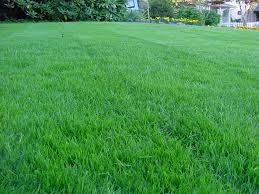How To Water Your Lawn
One of the questions we are asked so often at this time of year is “How should I water my lawn?”. Sounds simple enough, but there actually is a right way to water your lawn for best results.
How much water does my lawn need?
I’m glad you asked. Your lawn needs 1”-1.5” of water per week. Lawns that do not get enough water get stressed both in hot times and in cold times. The best way to tell if nature is giving you enough water (i.e. rain) is to by a rain gauge. If you naturally get the 1”-1.5”, great for you. If you don’t, it is time to put out the sprinkler.
How long should I water my lawn?
Another great question. You are on a roll. Again, a rain gauge is the best way to tell if you are watering your lawn long enough. If you do not have a rain gauge, an empty tuna can set on your lawn can be used. When it is full of water, you have applied 1” of water.
How often should I water my lawn?
Longer, deep waterings are better than short daily waterings. By watering longer and letting the water get deeper into the soil, you are encouraging a deeper root system which will hold up much better during the stressful hot summer. Watering 2-3 times per week for 20-30 minutes each time should give your lawn the water it needs.
 When should I water my lawn?
When should I water my lawn?
The best time to water is in the early mornings. This will allow the most water possible to be taken up by the grass and not evaporate into the air. Also, it allows the leaves time to thoroughly dry before the cooler nighttime air moves in, which will decrease the chances of fungal growth.
A few more pointers:
- Do not water so much that water runs down the street. This is a sign that the soil has taken up as much water as it can.
- If a brown area does not green up with repeated waterings, look for another problem such as fungus, insects or chemical burn (i.e. gasoline).
- If you have an automatic sprinkler system, have it checked often for proper coverage.
- If you do not have an automatic sprinkler system, buy a movable sprinkler. There is no way you will water long enough by standing there with a hose.
- Fescue lawns require more water during the hot, drought times of the year.
It is not hard to manage your lawn watering correctly if you follow these simple guidelines. If you do, the grass will be greener on your side of the fence.
Phone: 3015-515-1900 Email: info@allentucklandscaping.com
Allentuck Landscaping Co. is Your Residential Landscape Company proudly serving Chevy Chase, Bethesda, Potomac, Darnestown, North Potomac, Rockville, Gaithersburg, Boyds, Germantown, Clarksburg, Ijamsville and Urbana.

